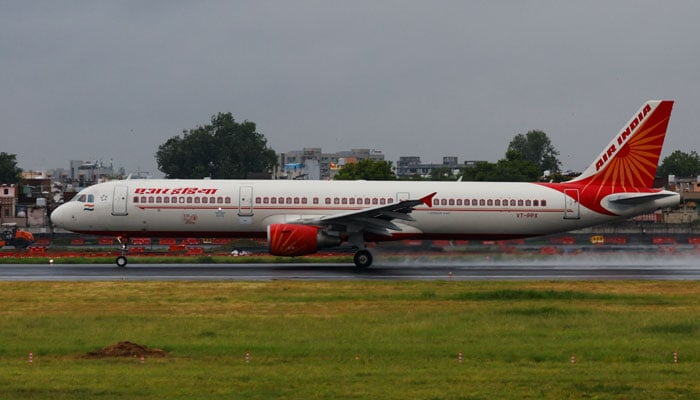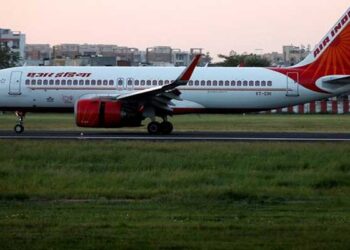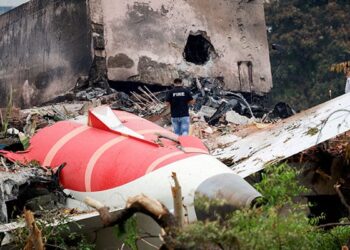Select Language:
Air India Under Fire Following June Crash
An Air India Airbus A321 takes flight at Sardar Vallabhbhai Patel International Airport in Ahmedabad, India, on June 17, 2025. — Reuters
- Air India faces heightened scrutiny post-June crash.
- Budget carrier criticized for delaying engine part replacements.
- Airline reports corrective measures, including the suspension of a manager.
India’s aviation regulatory authority issued a warning to Air India’s budget service in March for failing to quickly replace engine components on an Airbus A320 as mandated by the European Union’s aviation safety agency. The airline is also accused of manipulating records to claim compliance, as stated in a government memo.
Air India Express acknowledged this misstep in a statement to Reuters, noting that they took “corrective action and preventive measures.”
Since the tragic crash of a Boeing Dreamliner in Ahmedabad in June, which resulted in the deaths of 241 out of 242 people on board, Air India has been under significant scrutiny. This incident stands as the worst air disaster globally in a decade and is still being investigated.
Concerns about the engine situation on the Air India Express Airbus were raised on March 18, well before the crash occurred. Moreover, this year, the parent company, Air India, has been warned for violating regulations related to flying three Airbus planes that had overdue checks on emergency slides, along with receiving a caution about “serious violations” regarding pilot duty hours.
Air India Express operates as a subsidiary of Air India, which is part of the Tata Group. The airline has over 115 aircraft and services more than 50 destinations, operating around 500 flights daily.
In 2023, the European Union Aviation Safety Agency issued an airworthiness directive concerning potential safety issues with CFM International LEAP-1A engines, requiring the replacement of specific components such as seals and rotating parts due to identified manufacturing defects.
The directive stated, “If this issue is not addressed, it could lead to the failure of affected parts, potentially resulting in the release of high-energy debris that could damage the aircraft and impair its control.”
A confidential memo from the Indian government to the airline, which Reuters obtained, indicated that surveillance by the Directorate General of Civil Aviation (DGCA) found that the necessary modifications to the engine on an A320 were not completed “within the prescribed time frame.” The memo also noted, “To show compliance, records were apparently altered or forged,” referring to the Aircraft Maintenance and Engineering Operating System software airlines use to track maintenance.
According to the memo, a mandatory modification was required for Air India Express’ aircraft, VT-ATD, which typically flies domestic routes as well as international flights to Dubai and Muscat, as per data from AirNav Radar.
The oversight demonstrates that the responsible manager failed to maintain proper quality control, the memo explained.
Air India Express informed Reuters that its technical team unfortunately missed the scheduled deadline for parts replacement due to an issue with the transition of records on its monitoring software, but quickly rectified the problem once identified.
While the airline did not specify dates for compliance or address the DGCA’s allegations about record alterations, it did say that following the March memo, “necessary administrative actions” were taken, including the removal of the quality manager and the suspension of the deputy in charge of ongoing airworthiness.
Neither the DGCA nor the European aviation agency responded to Reuters inquiries. Airbus and CFM International, a collaboration between General Electric and Safran, also declined to comment.
This lapse was first noted during a DGCA audit in October 2024. The aircraft in question completed only a handful of flights after its deadline for replacing the CFM engine parts, as reported by a source with direct knowledge of the matter.
“Such issues must be resolved immediately. It’s a serious oversight, especially when flying over water or near restricted airspace,” stated Vibhuti Singh, a former legal expert at India’s Aircraft Accident Investigation Bureau.
In February, the Indian government informed parliament that authorities had warned or fined airlines for safety violations on 23 occasions in the past year. Among those, three cases involved Air India Express and eight pertained to Air India.







